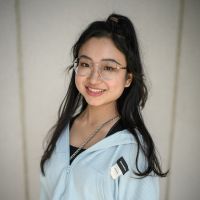5 min read
We sat down with Yuxuan, who took IR220: Digital Platforms: Power, Politics and Resistance in 2023, to hear about how the course helped inspire her postgraduate path!
Why did you decide to attend LSE Summer School?
Firstly, I’ve made up my mind to apply for postgraduate study at a British University next year, and LSE is my top choice. I applied to Summer School in the hopes that the experience can help me accumulate more relevant academic knowledge for my postgraduate application. Moreover, I heard that LSE Summer School aims to provide us with a taste of academic courses similar to those that LSE students take, which was useful.
Why did you choose IR220?
IR220 was the only course offered by the Media and Communication department in session 3. As I was only able to attend this session and this course was most relevant to my major of Journalism, I decided to go for it - it turns out that I am so lucky to have taken this amazing course, even if it was a slightly random choice at first!
Tell us about an average day as a student on IR220.
We had a lecture in the morning and a seminar in the afternoon, and both of them required us to prepare beforehand by reviewing the required reading. There were also additional readings and slides provided on Moodle for anyone who would like to delve deeper into the subject, but I think reviewing the class slides and finishing the required reading before every lecture is enough.
The morning lecture gave us a broader introduction and explanation of theories and related cases, while the afternoon seminar focused more on the required reading. Although both lecture and seminar encouraged us to actively interact, the seminar was specifically designed to be a time for group discussion.
What was your favourite part of IR220?
I enjoyed the discussions of labour issues in relation to digital platforms, particularly when my professor Dr. Plantin emphasised the profound societal impact of digital platforms. We then went on to study topics such as content moderation, hiring algorithmic systems, recommendation systems, and how calendar apps shape guidelines for workers. The different topics of the course were perfectly ordered, enabling me to learn the subject more deeply in a logical order.
What advice would you give to students considering IR220?
Firstly and most importantly, don’t be freaked out by the large amount of reading, because their aim is to help you understand the topics more easily, instead of to overwhelm you or signal the course is difficult to learn. While some of the readings can seem incomprehensible, the teachers are great at making the topics and readings easier to understand and enlightening in discussions. However, reading a few relevant papers or books before the course begins can certainly be helpful!
What are your short-term professional goals, and how does IR220 contribute to these goals?
My short-term professional goals are to figure out the specific area that I want to learn more about for postgraduate study, and to learn more about academic writing. For the first goal, the relatively broad topics covered by the course enabled me to have a general understanding of this large area of study, and then in depth discussions about a particular topic that interests me more (labour issues generated by digital platforms) encouraged me to figure out my graduate path. For the second goal, almost every seminar taught us what and how to do better in different stages of essay writing, and there were so many useful methods.
Was meeting and talking to other students on your course easy?
Everyone was friendly, knowledgeable, and funny! They were all willing to share opinions and helpful suggestions, and we also had a great time talking about all the interesting topics.
What would be your top tip for future Summer School students?
My top tip is to communicate with everybody around you bravely, whether the teachers, classmates, or any strangers you meet at school, and never be anxious about your accent, because everyone is friendly here. You can learn more than you ever thought from talking to people at LSE Summer School.
How would you explain IR220 to someone who has never heard of it?
It is a course that covers how digital platforms have more and more power in politics and society, and how people try to resist this power. For example, digital platforms rely heavily on databases, and platforms like Facebook can sell users’ data for their interests. Sometimes, people’s personal data is sold to governments and corporations, which compromises citizen’s rights, leading to protests against digital platforms.
What was your favourite part of studying at LSE?
My favourite part was the international and social atmosphere, which inspired me to learn multicultural knowledge and diverse perspectives, as well as showing me the immense power that the social sciences bring to the world.

